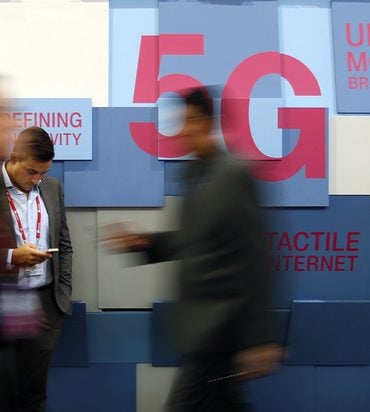Find out the week’s top mobile stories from around the world.
This week.. Mobile networks aim to stamp out banking text frauds, Google is killing off messaging app Allo, concerns for shopping online without a mobile, data privacy issues may be capturing more attention in China… and much more…

Mobile networks aim to stamp out banking text frauds
Financial Times
Four UK mobile network operators have joined forces in the fight against text message payment scams, a key factor behind the rise of push payment fraud which costs customers of UK banks hundreds of millions of pounds per year. The SMS Phishguard initiative from EE, O2, Three and Vodafone aims to stamp out text message based phishing scams, where fraudsters are able to “spoof” numbers so bogus texts appear to be sent from a bank.
To be launched early next year, banks that sign up to the service will register their text message headers — the sender name that a customer receives on a text — making fraudsters unable to use them to impersonate banks. Tens of thousands of consumers fall victim to push payment fraud every year. Fake texts purporting to be from a bank’s fraud department are among the methods used to trick people into sending money to scammers.
Read more…
Google is killing off Allo, its latest messaging app flop
Tech Crunch
The messaging app was only launched in September 2016 but it was pretty much flawed from the word go with limited usage. Google was, once again, painfully late to the messaging game.
The company said it had ceased work on the service earlier this year, and now it has announced that it’ll close down in March of next year.
“Allo will continue to work through March 2019 and until then, you’ll be able to export all of your existing conversation history from the app,” Google said in a blog post. “We’ve learned a lot from Allo, particularly what’s possible when you incorporate machine learning features, like the Google Assistant, into messaging.”
Instead of Allo, Google is pushing ahead with RCS (Rich Communication Services), an enhanced SMS standard that could allow iMessage like communication between Android devices.
Read more…
Want to shop online? Best have a mobile signal
BBC
As millions start their Christmas shopping online, there’s a warning that consumers may need to have a mobile phone, and a decent signal, to make sure their transactions go through.
UK banks are starting to introduce a new layer of security, involving passwords sent to your mobile phone.
That could be a problem for hundreds of thousands of householders without a mobile, or no proper signal.
Now banks are being urged to find other ways to check a customer’s identity.
The new rules are part of an EU directive – already adopted by the UK – which is due to come into force by September 2019.
Read more…
Data privacy issues may be capturing more attention in China
CNBC
A wave of security breaches has made protecting personal information a greater priority for consumers around the world.
Executives say that’s even been been true in China, where rapid adoption of innovative mobile services has created a horde of data.
Paying with a smartphone using Alibaba-affiliated Alipay or Tencent’s WeChat Pay has become ubiquitous, while WeChat has become the default messaging app for both personal and business discussions. As a result, China’s tech giants have accrued huge amounts of information on their users, which some worry could be used inappropriately.
It seems most Chinese are willing to give up details about their financial, personal and professional lives for the sake of convenience, but that may be changing as consumers become more aware of security issues and companies work to improve collection practices. This week, the China Consumers Association released a report stating that 91 of 100 apps it surveyed may be suspected of excessive data collection.
Read more…
Want to ruin text messaging? Get the government involved
The Hill
The FCC is poised to defeat an effort to make it easier for spammers and other bad actors to bombard users through text messaging. Consumers should rejoice.
Thanks to its ease of use and low spam rates, text messaging has become a trusted form of communication for millions of Americans. In 2017, 1.77 trillion messages were exchanged in the U.S., or nearly 15 messages per day for every American.
To preserve the integrity of wireless messaging, providers have enacted measures – including filtering algorithms, robotext blocking, and anti-spoofing procedures – to combat spam and other unwanted or malicious traffic. Wireless providers have deployed sophisticated tools like artificial intelligence to calibrate these spam filters in real-time to maximize their effectiveness. These efforts have helped make wireless messaging a nearly spam-free service. While the spam rate for email is about 53 percent, the analogous rate for text messages is just 2.8 percent. Despite this track record of success, some have tried to change wireless messaging’s regulatory classification to make it easier for spam to reach users.
Read more…
The 5G mobile browser problem no-one is talking about
ZdNet
It has been a lot of work for Qualcomm to get to this point with 5G, and the future looks bright — but not so for mobile browsing.
At the Qualcomm Snapdragon Tech Summit in Maui, Hawaii, which is taking place this week, 5G demo devices are on the table, carriers are waxing eloquent to the audience over their emerging 5G deployments and expanding networks, and the US chipmaker has been showing off the latest-and-greatest in the Snapdragon system-on-a-chip (SoC) family, the 5G-ready Snapdragon 855.
5G is an exciting prospect, although not necessarily one that will immediately capture the interest of consumers. Business use cases are more likely, first, and as 5G rolls out to become as common as 3G/4G, the general public will become absorbed into the transition.
Read more…
App market analyst believes console gaming is ‘under threat’ from mobile competitors
MCV UK
A global provider of app market data believes mobile gaming spend will exceed console revenue within the next six years.
App Annie’s EMEA managing director and SVP of partnerships, Nicolas Beraudo, claims console gaming is “finally under threat”, projecting that cross-platform play – lead by games like Fortnite – and the evolution of smartphones with better battery life and 5G technology, will enable mobile sales to claim an additional 35 per cent of the global gaming market and drive its overall share of consumer spending to 60 per cent.
“Games in 2019 will be less siloed and more connected,” Beraudo said. “But mobile isn’t just gaining a bigger piece of the pie, it’s making the pie larger. Monetisation opportunities stand to increase as a result of the increase in cross-platform play as well as the increase in mobile payment adoption. The fastest growing form of monetisation in mobile gaming is subscription-based.”
Read more…
WhatsApp skewed Brazilian election, proving social media’s danger to democracy
The Conversation
Misinformation via social media played a troubling role in boosting far-right Congressman Jair Bolsonaro to into the Brazilian presidency.
Bolsonaro did not win 55 percent of votes thanks to misinformation alone. A powerful desire for political change in Brazil after a yearslong corruption scandal and a court decision compelling the jailed front-runner Luis Inacio Lula da Silva to withdraw from the race both opened the door wide for his win.
But Bolsonaro’s candidacy benefited from a powerful and coordinated disinformation campaign intended to discredit his rivals, according to the Brazilian newspaper Folha.
Read more…
Check Out The App Trend Predictions For 2019
Forbes
Check out the app trend predictions for 2019. App market data analytics company App Annie has five key predictions for the app market in 2019.These are:
1. App Store Consumer Spend Will Surpass $122 billion
If app store consumer spend reaches over $122 billion in 2019, as App Annie forecasts, it will mean that worldwide app store consumer spend is growing five times as fast as the overall global economy. This rise will largely be fuelled by a growth in demand for gaming apps.
2. Mobile Gaming Will Reach 60% of Market Share
The mobile-gaming market, the data analytics company claims, will largely be driven by casual gamers taking up fun and simple games, as well as hardcore gamers…
Read more…
How Blockchain Can Improve Trust in Mobile Advertising
Media Post
Consider the following: Between 2017 and 2018, mobile ad fraud just about doubled, according to Adjust. Close to 80% of all programmatic buyers lacked transparency for media buying. And over half of mobile advertisers now classify privacy concerns as an “urgent issue.”
In light of these challenges, is there a solution? Recently, there have been several efforts to marry blockchain and ad tech. What role can blockchain play in eliminating advertiser concerns and promoting greater transparency?
Blockchain combines encrypted messaging and public ledgers to help ensure fairness. However, it becomes difficult to defraud and get away with it. If one person disputes a transaction, thousands of others can jump in to mitigate. Blockchain has the potential to resolve transparency issues. As a result, advertisers and publishers will have a trustworthy record of where ads have run, viewability and measurement.













